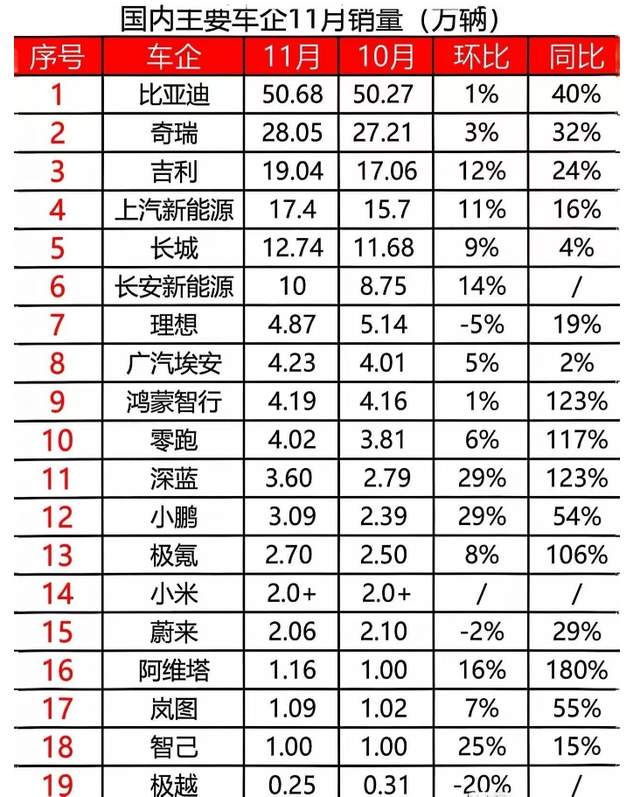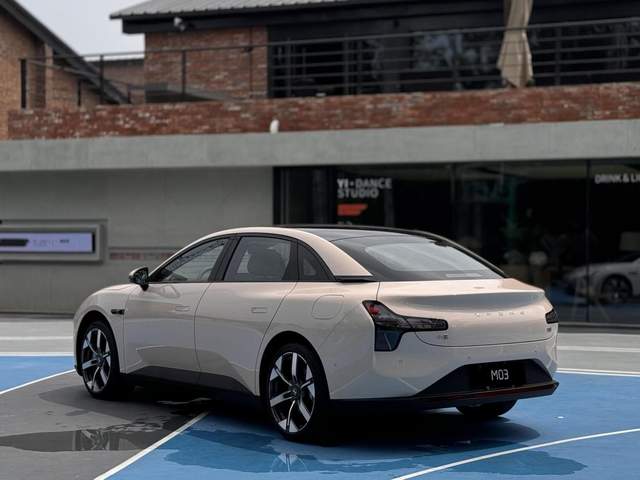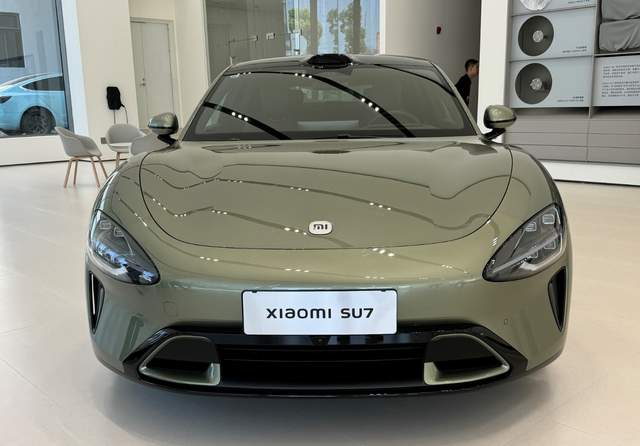November sales of new forces: Lixiang, Harmony OS stagnate, while Xiaopeng, Xiaomi, and Leapmotor catch up rapidly
![]() 12/02 2024
12/02 2024
![]() 669
669
With the end of November, major automakers have released their delivery volumes for the month.
Overall, the vast majority of automakers have seen year-on-year and month-on-month growth, with many automakers setting new highs again, such as BYD, which surpassed 500,000 units again and remained firmly in first place.
Meanwhile, Chery, Geely, SAIC New Energy, Great Wall, and Changan New Energy all sold over 100,000 units per month.

Among the new forces that everyone is paying attention to, performance this month was also good, with almost everyone showing growth. However, in general, in terms of sales of the new forces, there is a saying that summarizes the situation: Lixiang and Harmony OS Intelligent stagnate, while Xiaopeng, Leapmotor, and Xiaomi are catching up rapidly from behind.
As shown in the figure above, Lixiang sold 48,700 units in November, a 5% month-on-month decline from the previous month's 51,400 units, failing to reach the 50,000-unit mark again.

Huawei Harmony OS Intelligent sold 41,900 units in November, a 1% increase from the previous month's 41,600 units. However, considering that Harmony OS Intelligent now operates in three realms—Askey, Wisdom, and Enjoy—and another realm, Zun, has been announced but not yet delivered, the overall increase of just a few hundred units can be considered stagnation.
Xiaopeng, since the launch of the Mona M03, has seen a significant increase in sales due to its high cost-effectiveness, delivering over 30,000 units in November, a 29% month-on-month increase and a 54% year-on-year increase, setting a new high.

Leapmotor also broke the 40,000-unit mark for the first time, not far behind Harmony OS Intelligent. If Leapmotor continues to improve next month while Harmony OS Intelligent stagnates, it may soon surpass Harmony OS Intelligent to become the second-largest player.
As for Xiaomi, it has been focused on deliveries. After exceeding 20,000 units in October, it surpassed 20,000 again in November. It is estimated that achieving an annual delivery volume of 130,000 units may not be particularly difficult.

Frankly speaking, judging from the current state of the entire automotive market, Xiaomi should have caught the last bus. It will be difficult for new automakers to emerge in the future.
This is because the current automakers are the survivors of a fierce competition. In 2018, seven to eight years ago, there were over 400 automotive brands in China, but now there are only over 100, with over 200 having closed down.
The automakers that have survived now each have their unique characteristics and core technologies, making it very difficult for new automakers to compete with them.






